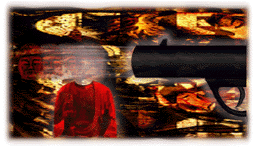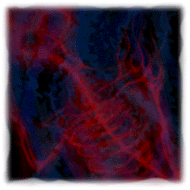

ast year I went to see Pulp Fiction.
I try not to go to too many Hollywood movies, but this one was such a central monument to American
culture that I felt a kind of responsibility to see it. I was amazed by the
scene where John Travolta (my grade school idol) and Samuel Jackson were
driving to a hotel to murder somebody. On the way they casually discussed
varieties of Big Macs and at the shootout, they didn't even blink. I was
stunned. The act of
killing was horrific on its own, but there was
absolutely no sense of remorse, no acknowledgment that what they were doing
might have been wrong.


e live in a culture where suffering is
hidden and sanitized--or we're so bombarded by it through the media that we've grown inured to it. It wasn't
until I was 22 and took a trip to India that I really had contact with
filth, sickness, old age, and death. Something clicked for me on the banks
of the Ganges River as I watched body after body cremated there.


he other day I had a conversation with a
friend in his late 20's, a singer in an underground band and a sometime artists' model. I was trying to
explain to him that an awakening to suffering in my life has helped me to
embrace Buddhist practice. "What suffering?" he said. "My life's great, I'm
really happy in it."
And why would he be interested in a practice about freeing himself from the
endless cycle of suffering when he's in the physical prime of his life?
When my life is sexy and exciting I'm not as interested in practicing
either. When I sleep over at my lover's, I don't always get up in the
morning to meditate.










